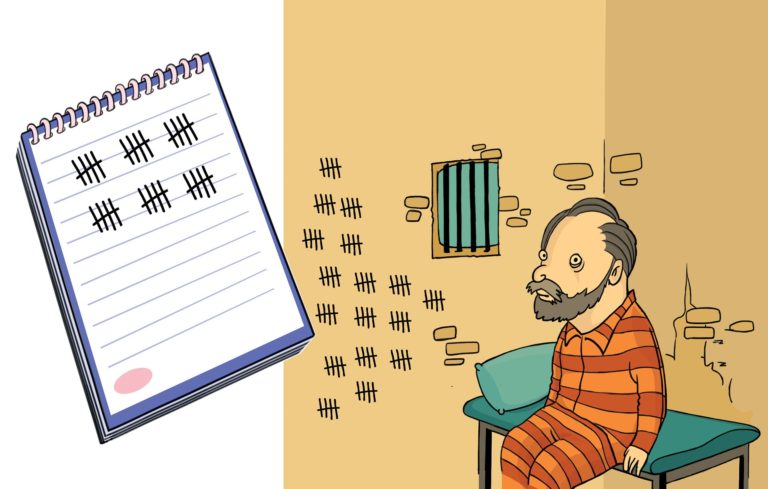Idioms to Use When You Are Sick
Feeling sick is arguably one of the worst feelings we can have as human beings. Whether it is a common cold during the changing of seasons or a hangover after a fun night out on the town, nobody enjoys feeling less than 100%. In this article, we will cover some creative expressions that can be used to talk about getting sick, experiencing some nasty symptoms, and finally being on the road to recovery. It can be easy to continuously default to using “I’m sick” to describe your condition, but our health is often much more nuanced than that. It is important to accurately convey how we are feeling if we want to receive the right care or sympathy from those around us. So, why not use a couple of these phrases to jazz up your idiom skills?
See also: 28 Better Ways to Say “Very Bad”
Early Symptoms
- Something’s going around
“Something’s going around” is a colloquial phrase that we use when we notice an illness spreading in a community. Furthermore, it is a great idiom to use when we think that we might be experiencing early symptoms of that same illness. In a way, we are predicting our own illness before getting confirmation of it by assuming we have caught whatever the people around us have.
E.g., “There’s something going around at my daughter’s pre-school, so I guess that’s why my wife is feeling unwell.”
E.g., “There’s clearly something going around at my office, so I will wear a mask at work this week.”
- Coming down with something
If someone says that they are “coming down with something,” they mean that they are experiencing the very early symptoms of a cold or the flu. For example, if you wake up feeling generally fine but can feel a slight discomfort at the back of your throat, you might be coming down with something. We say “coming down” because you are coming down from your usual state or level of activity to a lesser one. This phrase is useful to let those around you know that you might become sick in the coming days.
E.g., “I feel tired all day today even though I slept a lot last night. I must be coming down with something.”
E.g., “Derek said he cannot attend the presentation this afternoon as he has come down with something.”
- Feeling off
“Feeling off” is a fantastic colloquial expression that can be used in a wide range of situations. It indicates that you do not feel the same as you normally do, whether that is mentally or physically. People who use this phrase do not precisely know what is wrong with them or their bodies, but they realize that something is preventing them from feeling good.
E.g., “I’ve been feeling off ever since my mother and I got into that big argument last night.”
E.g., “I feel so off today. Perhaps I caught a cold when I went skiing last weekend.”
- Out of sorts
Being out of sorts is another expression that symbolizes not feeling like your usual self. However, it is different from just feeling off, as this phrase is stronger. Therefore, it becomes easier to notice these changes in a person’s behavior. If you feel out of sorts, you might experience mood swings, irritability, or visible physical discomfort–you feel grumpy. The interesting origin of this phrase comes from traditional printers. “Sorts” were boxes of individual letters that were used in the printing process. Running out of sorts in the middle of a print job would be frustrating and cause the worker to feel annoyed, just as we do when we are falling sick!
E.g., “I’ve been out of sorts for the past week while trying to meet the final deadline; I think I need to get some more sleep.”
E.g., “The recent snow storms and freezing temperatures got me feeling out of sorts.”
- Under the weather
The phrase “under the weather” comes from the old days of sailing ships. If a sailor felt sick, they would retreat downstairs into the cabin to stay out of the weather so as to not make their symptoms worse. Therefore, they were literally under the weather. Nowadays, this idiom refers to a mild illness or a temporary sadness. We often use it in daily conversation to explain why we might seem a little tired or not as perky as usual.
E.g., “I’m afraid I won’t be able to join you for drinks tonight. I’m feeling a little under the weather.”
E.g., “I always feel under the weather on such gloomy and rainy days.”
See also: When is it Okay to Use Ain’t?
Feeling Sick
- Caught a bug
Some of you might know the word bug as a casual way to refer to an insect. Did you know it is also used to refer to a virus? Similar to insects, viruses are tiny pesky organisms that are annoying to deal with. Catching a bug has the same meaning as catching a cold. In addition, bug is often used to describe a stomach related illness. For example, if you get sick after eating expired food, you might have caught a stomach bug.
E.g., “I caught a stomach bug last week. I knew that chicken sandwich tasted a little strange!”
E.g., “My daughter has been coughing all morning. She must have caught a bug at kindergarten.”
- Run-down
After battling a cold for a couple of days, you might start to feel exhausted from all the seemingly never-ending symptoms. In this case, you can say you are run-down, as your energy levels have been severely decreased. Furthermore, it is an appropriate expression to use after a long period of hard work or stress. The key nuance here is the long-term effect of feeling ill.
E.g., “I felt extremely run-down for weeks after contracting COVID-19.”
E.g., “After pulling numerous all-nighters this week, I have to admit I am feeling quite run-down.”
- Worse for wear
This idiom has been used for a long time to describe objects that have deteriorated in quality due to being used too much. For example, a pair of hiking boots that have started to develop holes in the soles after being worn for years is said to be worse for wear. In modern times, we use this phrase to compare our physical condition to these overused items. It is especially common to describe the terrible feeling we get in the morning after drinking a lot of alcohol.
E.g., “Tasha was looking a little worse for wear this morning at breakfast after we partied until 5 in the morning last night.”
E.g., “I felt quite worse for wear for a while after leaving the hospital following my concussion.”
- Sick as a dog
The phrase “sick as a dog” originated in the 1700s. Before dogs became our friendly companions, sharing our living spaces, they lived on the streets, where they developed a bad reputation associating them with disease. For over 300 years, English speakers have been using this idiom to express feeling extremely sick, especially when nauseous.
E.g., “I feel sick as a dog after I got food poisoning at that all-you-can-eat buffet.”
E.g., “John sounds sick as a dog–he hasn’t stopped coughing all morning.”
- At death’s door
As you can probably tell, the expression “at death’s door” is a serious one. It can be used for people who are in critical condition and are at risk of being close to dying. However, we often use exaggerations in English to emphasize our statements. Therefore, this idiom can also be a nice piece of figurative language that is used to dramatize the severity of our condition.
E.g., “Despite being at death’s door, Mariah made a miraculous full recovery.”
E.g., “I was so sick last week that I thought I was at death’s door.”
- Cough up a lung
Another phrase that greatly exaggerates our symptoms is “cough up a lung.” It is fairly obvious that the person using this idiom did not actually cough up a piece of their vital internal organs. However, they were coughing so intensely that they felt like they might!
E.g., “I remember having bronchitis last summer. It was awful. I thought I was going to cough up a lung!”
- Splitting headache
Continuing our trend of dramatic idioms, another creative way to describe your painful headache is “splitting headache.” Have you ever had a headache so intense that you feel like your head might split open in half? This strong imagery conveys how devastatingly awful the pain can be. This is a pretty common expression that can be used in any daily conversation.
E.g., “Sometimes, I get a splitting headache at the end of my work day if I use my computer for too long.”
See also: Fifteen Must-know English Idioms About Health and Wellness
Recovery
- On the mend
Good news! Your nose is partially unblocked, and you have not spiked a fever in over 24 hours. You are finally on the mend. Mending is a synonym for repairing or healing. This phrase offers a positive outlook as you begin your recovery process. In addition to health issues, it can also be used for the recovery of bad business performance or economic problems.
E.g., “Thank you for asking about my condition. I know you were worried. I am definitely on the mend.”
E.g., “I was relieved to hear the doctor say that the surgery was a success and my father was on the mend.”
- Fit as a fiddle
The word fiddle has evolved significantly over time. At first, it meant “violin.” After that, it transformed to mean “something positive.” Henceforth, being fit as a fiddle meant that you were in excellent condition. When using this phrase after sickness, you show that you have made a full and successful recovery.
E.g., “I was sick for a couple of weeks last month, but I feel fit as a fiddle recently.”
E.g., “Get some rest, and soon you will be fit as a fiddle!”
In a perfect world, you would not need to use these phrases. However, everyone has an off day, and none of us are immune to the ups and downs in our health. Hopefully, next time you feel less than perfect, you can refer to these idioms to help you eloquently express exactly what it is that you are feeling.







